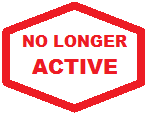Call for Papers for the Session
Analyzing Discourse and Foucauldian Regimes of Power/Knowledge with the Sociology of Knowledge Approach to Discourse and related perspectives
ICQI 2019
The Fifteenth International Congress of Qualitative Inquiry will take place May 15-18, 2019 at the University of Illinois at Urbana-Champaign (USA), see http://icqi.org/
Session Organizer:
Prof. Dr. Reiner Keller
Prof. of Sociology, Department of Philosophy and Social Sciences
University of Augsburg, Germany
reiner.keller@phil.uni-augsburg.de
http://kellersskad.blogspot.de
The session will discuss empirical research on discourses and regimes of power/knowledge in different social areas, using the Sociology of Knowledge Approach to Discourse (SKAD). This perspective on discourses and their analysis draws on Foucault, Berger and Luckmann and the interpretative paradigm of sociology including symbolic interactionism and "communicative constructivism". In comparison to the Foucauldian tradition, SKAD focuses more on social actors and societal arenas of discursive disputes. In comparison to Berger & Luckmann, it expands analysis of societal processes of knowledge construction in institutional contexts and in public or semi-public arenas. Integrating both, it re-orientates discourse research towards questions of social relationships of knowledge and politics of knowledge – following knowledges, their production and power effects through societies. In doing so, SKAD takes also into account research questions concerning situational analysis and organizational discourse as well as the challenges of applied research in the field. The session invites researchers using the SKAD framework and related approaches to present their work and/or to discuss further perspectives.
Please submit your abstract (max. 150 words, including first and last name, current institutional affiliation and email-address, word file, subject reference) by October 25, 2018 to
reiner.keller@phil.uni-augsburg.de
Professor Keller is member of the executive board of the German Sociological Association and co-editor of the Journal for Discourse Research/Zeitschrift für Diskursforschung.
